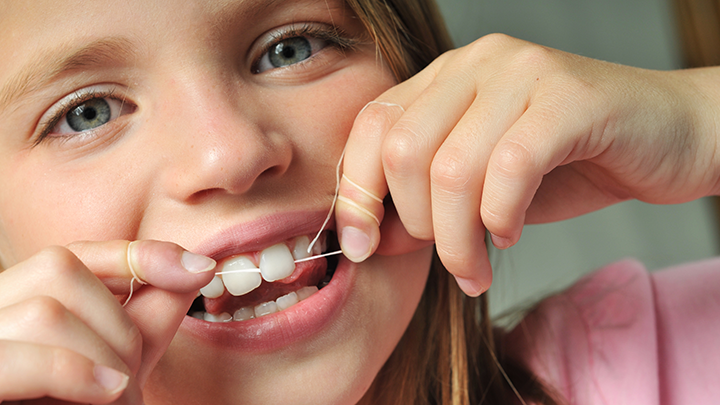
April 20, 2020

Children like to copy the grown-ups in their lives; they need to see you brushing and flossing.
Saliva (spit) can contain bacteria and viruses such as COVID-19. They spread through saliva droplets created when you brush and floss.
Follow these tips to help prevent the spread of COVID-19 and keep up with your daily oral hygiene.

Prevention is key—good oral health habits are less expensive than repairs or surgeries. The cornerstones of prevention are daily brushing and flossing.
COVID-19 has pushed many daily routines out the window. Think of the days you realize it’s noon and you haven’t brushed or flossed yet. Or the nights you fall asleep watching a movie and wake up with plaque-covered teeth.
You’re not alone, we’ve all been there.
The time is ripe to forgive yourself and get back into the routine of healthy oral care. Here’s how:
If you’re a parent, being a good role model for dental care can set your children on a path of good oral health for life. Alberta Health Services’ Healthy Parents, Healthy Children promotes starting to brush your child’s teeth with fluoride toothpaste when they get their first tooth.
MyHealth.Alberta.ca offers these tips for a strong start to your children’s oral health.
Prevention is key—good oral health habits are less expensive than repairs or surgeries.
Read Fluoride Toothpaste Tips for Kids as a reminder about fluoride toothpaste.
Many people only think of healthy teeth when they hear the words “oral health,” but it’s about more than your teeth. Oral health is being able to smile, speak, chew, swallow, touch and express feelings and emotions without pain, discomfort and disease. It gives you the confidence to live, work and play.
Oral health and general health have a two-way relationship. Oral diseases can cause poor general health. And poor general health can lead to oral health problems. For example, diabetes increases the risk of gum disease and gum disease can make diabetes harder to manage.
The most common oral diseases are tooth decay, gum disease and oral cancer. These are chronic oral diseases that can be prevented. Risk factors for oral diseases include poor oral hygiene, an unhealthy diet, using tobacco and tobacco-like products and drinking too much alcohol. These risk factors and others are also risks for heart disease, cancer, chronic respiratory diseases and diabetes. By taking action on these risk factors we improve our oral and general health.
Remember to brush and floss regularly, eat healthy food, drink water avoid tobacco and tobacco-like products and limit alcohol.
Alberta’s dentists and registered dental hygienists play a critical role in helping you prevent oral disease. Their regular services are closed during the COVID-19, but emergency dental help is available.
To learn more, see Your Mouth, Your Body, Your Health at MyHealth.Alberta.ca.